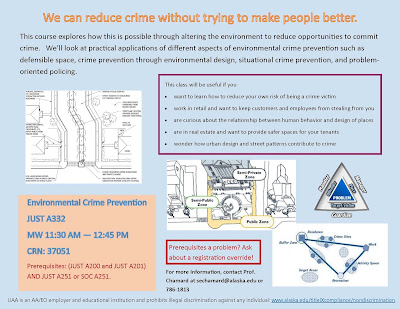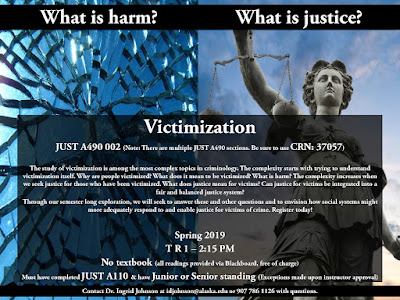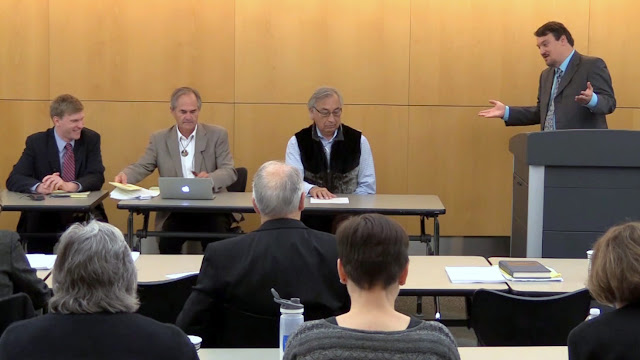The UAA Justice Center is seeking a Communications Coodinator & Editor.
This position provides editorial assistance with the preparation of Alaska Justice Forum articles, research reports, scholarly papers and presentations, and research proposals. The position orchestrates and supervises the entire publication process for the Alaska Justice Forum, including developing publication content with a focus on integration and synthesis of research findings on justice topics/issues. The successful candidate will serve as the Justice Center's media liaison and will also coordinate and supervise Justice Center public activities and events.
For more information contact the UAA Justice Center at (907) 786-1810.
This position provides editorial assistance with the preparation of Alaska Justice Forum articles, research reports, scholarly papers and presentations, and research proposals. The position orchestrates and supervises the entire publication process for the Alaska Justice Forum, including developing publication content with a focus on integration and synthesis of research findings on justice topics/issues. The successful candidate will serve as the Justice Center's media liaison and will also coordinate and supervise Justice Center public activities and events.
Requirements:
- Knowledge of communications theory and application in research, execution and evaluation of communications functions, best practices, and industry standards.
- Ability to mutli-task in a timely manner.
- Knowledge of cross-cultural communications, including translation of technical documents into forms accessible to general audiences.
- Ability to design print, multimedia, Web and collateral material.
- Ability to work and solve problems independently.
For more information contact the UAA Justice Center at (907) 786-1810.






















